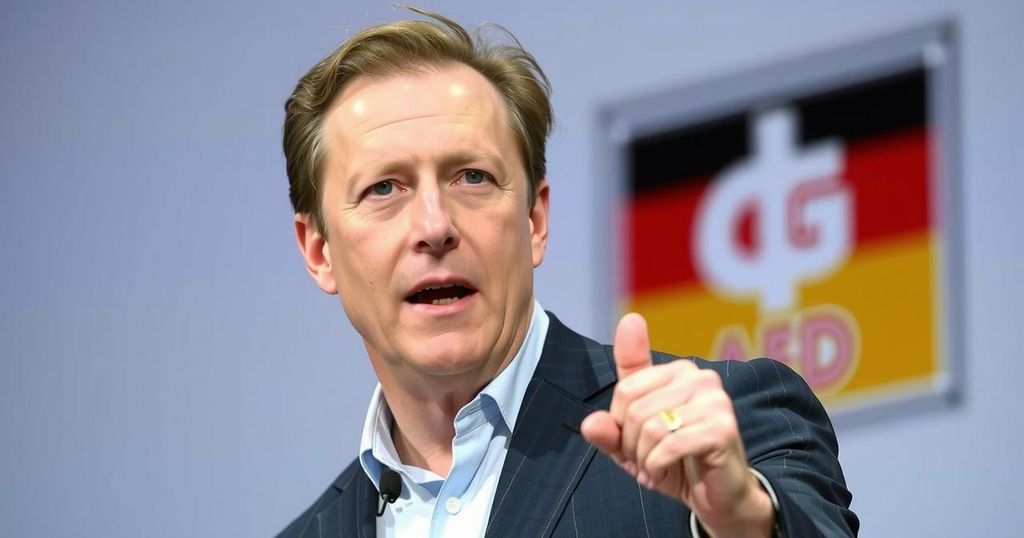Elon Musk’s Controversial Support for Germany’s AfD Party
Elon Musk publicly supported the far-right AfD party in Germany, claiming it is essential to prevent economic and cultural decline. His op-ed prompted considerable backlash from media and political figures, emphasizing debates about media influence and political interference. The AfD’s increasing polls and Musk’s vested interests illuminate the potential risk to Germany’s democratic processes in light of foreign endorsement.
In a recent op-ed for the Welt am Sonntag, Elon Musk reiterated his support for the far-right Alternative for Germany (AfD) party. He described the AfD as “the last spark of hope for the country,” asserting that it is the only entity capable of preventing Germany’s economic and cultural decline amid changing immigration policies. Musk criticized the mainstream view labeling the AfD as extremist, commenting on its leadership and governance policies favoring deregulation and lower taxes. His statements sparked significant backlash, including resignation protests within the Welt editorial team, and drew ire from prominent German politicians such as Friedrich Merz and Lars Klingbeil, who accused Musk of interfering in domestic politics.
Discussion surrounding the appropriateness of Musk’s commentary highlights Germany’s press freedoms as enshrined in its Basic Law, which protects expression and journalism. While editorial endorsements for political candidates are rare, they are not without precedent. Welt’s decision to publish Musk’s op-ed, particularly given its conservative ownership and leadership, raises questions about the influence of billionaires on media narratives. Musk’s intentions appear to intertwine with personal economic interests, especially concerning his investments in German manufacturing, suggesting that his support for the AfD may enhance the viability of his business operations in the region.
The controversy surrounding Elon Musk’s endorsement of the AfD emanates from broader electoral tensions in Germany, particularly with the impending legislative election on February 23, 2024. The AfD, a far-right party currently polling at approximately 20% support, poses a significant challenge to the mainstream political establishment, which has denounced its ideology. Musk, a public figure with substantial influence due to his wealth and social media presence, has previously been associated with supporting various populist movements globally, raising concerns about the potential normalization of right-wing ideologies in mainstream discourse.
Musk’s promotion of the AfD has ignited a fierce debate about media responsibility, political influence, and the implications of foreign involvement in domestic elections. While Musk champions the party’s policies as beneficial for economic revival, critics assert that this stance endangers democratic values and destabilizes Germany’s political landscape. The unfolding events underscore the heightened scrutiny of media relations and political endorsements as the election approaches.
Original Source: www.dw.com




Post Comment